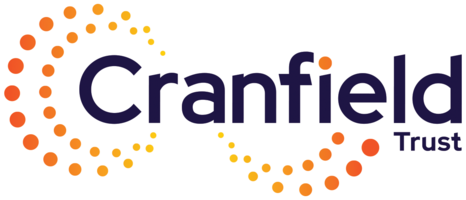Introducing our Blueprints for charity managers and leaders
We have undertaken in-depth research to explore leadership and management training for smaller voluntary organisations. We explored what learning opportunities charity managers felt they needed, and how the training market matched – or didn't match - their needs. Our research discovered there to be many gaps where charity leaders didn't readily have access to the training they needed to support them to deliver their role. In our research report, Charity Management Matters, we set out to make our own training more accessible, improve navigation to online learning opportunities, and encourage other training providers to do the same.
We are committed to supporting greater development and training opportunities and, as a result, we have developed our Blueprints for charity managers and leaders. Our Blueprints set out key skills and knowledge for leadership roles, and signpost to essential learning and development all in one place, to help build greater capabilities and confidence. We aim to support the development of even stronger leadership and management across the whole sector.
Scroll down to find our Blueprints for:
- Leadership & Strategic Direction - for Chief Executives and Senior Leaders
- People Management - for Chief Executives or Deputy Chief Executives, Chief Operating Officers, Finance & Admin Heads or others with people management responsibilities
- Financial Management and Sustainbility - for Finance Leads, Chief Executives, Senior Managers and others who need to use and understand financial information
- Performance & Impact - for Chief Executives, Senior Leaders and Managers and Impact Leads

Chief Executive/Senior Leader or Director
Role responsibilities
You are the Chief Executive, or are in another leadership role in your organisation
With your Board and other senior colleagues, you are responsible for, or contribute to, setting the organisation’s vision, values, strategy and direction
You develop the business plan, allocating resources and planning activities to fulfil the strategy, and setting objectives for your team
You are responsible for implementing the business plan, and for planning and implementation of your function’s activities, setting and reaching targets and achieving goals
You take significant decisions for your organisation, in line with the strategy and business plan
You are the main contact with your Board, or have Board level relationships for your function, supporting good governance and contributing appropriately to Board decisions and discussions
You play a key role in developing and supporting your organisation’s culture
You lead your team, providing direction and management to your colleagues
You represent your organisation, writing and speaking about your work, and raising awareness of your activities
You lead on key relationships with stakeholders and supporters
You play a role in sector-wide activities, bringing your expertise and your organisation’s experience to contribute to developments and collaborate with others in your area of work
Developing strategy
A strategy helps leaders of small charities to set a clear vision and goals, align views from the Board and colleagues, think carefully about the operating environment, and to plan resources effectively.
Find out why strategy matters in this article from Cranfield Trust's CEO.
This article provides practical guidance on developing a strategy in times of change.
Developing vision and values
Guidance on developing your charity mission and vision from Charity Excellence
Building your vision, mission and strategic objectives from Directory of Social Change
Guidance for developing organisational values
Building positive Board relationships
Your Board need to be aligned and in tune with your strategy. Take a look at the advice from the nonprofithub on building a healthy board relationship.
Developing organisation culture
A positive and supportive culture can foster a sense of belonging and purpose, leading to greater team engagement and motivation, productivity and better staff and volunteer retention. Take a look at some of the available guidance and advice on organisation culture:
CPD UK Understanding and developing organisational culture
CIPD viewpoint on organisational culture
Institute of Directors organisational culture and governance
Stakeholder mapping
Stakeholder mapping is important for leaders as it can help to identify, understand, and effectively engage with individuals and groups that are important to your organisation. It can lead to better outcomes and stronger relationships.
Institute of Chartered Accountants England and Wales (ICAEW) guide to stakeholder mapping
The IRM guide to stakeholder mapping
NCVO importance of stakeholder engagement when running a charity
Civil service guide to stakeholder mapping

Chief Executives or Deputy Chief Executives, Chief Operating Officers, Finance & Admin Heads or others with people management responsibilities
Role responsibilities
You are responsible for HR compliance – meeting legal and regulatory standards, and mitigating risks
You prepare and maintain HR policies to guide, inform and support employees and meet legal and regulatory requirements
Employee relations: you address issues arising between employees and the organisation, ensuring fair and equitable treatment and compliance with legal requirements
You are responsible for or contribute to HR operations – advising or managing resource planning in line with organisation strategy, and delivering operational efficiency.
You may develop a workforce strategy. You look at organisation capability needs and address gaps, mitigate risks and support the achievement of strategic objectives
You manage recruitment activities to attract people to the organisation, including equitable processes to build a diverse, representative and skilled workforce
You establish performance standards, support colleagues and directly manage performance issues, promoting clarity, wellbeing, growth and accountability
You make recommendations on reward and recognition for staff to motivate high performance, promote inclusion and influence employee engagement
You plan ahead in terms of succession, identifying potential future leaders and managers, to support continuity and sustainability of key areas of work
You contribute to activities which build a positive culture and enhance employee engagement, satisfaction and retention, creating a positive work environment and a sense of belonging and purpose
You integrate DEI practices to develop a workforce that reflects diverse perspectives and backgrounds, ensures equitable decision-making, and nurtures an inclusive culture or respect, empowerment and belonging
You implement initiatives to support employees’ wellbeing, fostering a positive work environment, in which people feel safe to express opinions, take risks and make mistakes without fear of retribution, to enhance trust, innovation and collaboration.
HR compliance: employer essentials
HR guidance from www.gov.uk:
Guidance if you employ someone
HR policies and processes
A range of tools are available to support your HR processes and procedures, shared below:
NCVO HR policies and procedures for running a small charity
ACAS HR policy and letter templates
Resource planning and workforce strategy development
Workforce planning from the Norfolk Community Foundation
Guidance on effective recruitment
ACAS job applications and hiring
Indeed recruitment process advice
Setting objectives and managing performance
A guide for meaningful appraisals used by the NHS
Reward and recognition
Charity Job guidance on how to recognise and reward volunteers
Succession planning

Finance Leads, Chief Executives, Senior Managers and others who need to use and understand financial information
Role responsibilities
You are responsible or partly responsible for the financial processes in your organisation
You record financial information, interpret financial statements, and carry out reconciliations
You need to understand accounting concepts and standards, and apply them to your work consistently
You develop and maintain processes in the finance function and identify changes needed, understanding how they have an impact on and are affected by other parts of the organisation
With colleagues, you develop key financial performance indicators, collect data and analyse trends to monitor financial performance
You understand and manage costs, and set budgets for the organisation, monitoring expenditure against budget and preparing forecast information
You produce financial reports which for different functions, including the leadership of the organisation and the Board, and create financial presentations when needed
You interpret reports to extract relevant financial data
You use systems to manage the finance function, and can explain to others how information is recorded and managed
You are responsible for the financial compliance of the organisation, applying key principles of integrity, transparency and professionalism in the process
You need to understand and manage financial risk and be able to develop procedures to mitigate and manage risk
Preparing a budget
NCVO has two useful guidance documents to help charity leaders preparing a budget:
Planning and budgeting guidance
Charity Excellence also has a useful budget template
Key financial indicators
Cranfield Trust's Top 10 Financial Ratios Guide can help to keep your charity finances on track, written by our highly experienced volunteer Frank Learner and Head of Operations Marie Langan
Top 10 tips for assessing the financial management of smaller charities is an essential guide on what you should consider when you're looking at charity finances, written by Cranfield Trust volunteers and Head of Operations
Management accounts
Cranfield Trust volunteer Stuart Walker has created a guide to management accounting for charity leaders and managers, indicating how to go from a standing start to a regular management accounting pack for your managers and board.
Stuart has also created an Excel workbook to give you a helping hand to get started.
Managing reserves
A useful guide on managing reserves for small charities from the Charity Finance Group
Charity Excellence's charity reserves policy template provides practical guidance for managing reserves
Managing risk
Proactively managing risks can support your long term sustainability and protect your ability to support your beneficiaries. We have pulled together some useful risk management guidance and materials from the Charity Finance Group, Charity Governance Code and Charity Excellence.
The Charity Finance Group risk guide for small charities
Charity risk template from Charity Excellence
Financial policies and procedures
The Government's internal financial controls checklist provides an outline of the financial controls for charities
Preparing annual accounts
There's lots of useful guidance from www.gov.uk on preparing annual accounts:
Preparing your charity's annual accounts
A practical template for charities with incomes of £500k or less
Preparing your charity's trustees annual report
Charity Excellence also provides an example annual accounts template
Finance for fundraising
A useful charity budget template from Charity Excellence
Understanding and managing costs
NCVO provides practical help and guidance on full cost recovery, direct and support costs
Recording assets and calculating depreciation
You can download a useful balance sheet template from Charity SORP
Watch AAT's video how to account for depreciation on YouTube. It covers what depreciation is, the different methods to calculate it and how record it in your accounts.

For Chief Executives, Senior Leaders and Managers and Impact Leads
Role responsibilities
With colleagues, you use tools or frameworks such as Theory of Change to articulate your organisation’s purpose, activities and desired impact
With colleagues, you decide what data and information is needed to manage organisation performance and understand the impact of your services and activities
You design or co-design data collection tools such as surveys, interviews and focus group discussion guides
You are responsible for collecting quantitative (numbers) and qualitative (comments and feedback) data, through regular operational activities and using other tools (eg surveys)
You analyse qualitative and quantitative data, producing internal reports and reports for external stakeholders, including funders
You prepare reports which highlight learning at operational and strategic levels, and make recommendations for improvement
You work with colleagues to implement recommendations to improve processes and provide excellent service user experience
Identifying data to manage organisation performance
Guidance from Cranfield Trust on the Top 10 Financial Ratios for Charities
Designing data collection tools
Having the ability to capture and analyse data is an essential step in being able to show the impact of your services and organisation. DataKind UK and NCVO have some guidance in this area:
Key data skills from DataKind UK
Using creative data collection methods, guidance from NCVO
Data analysis
Charity Digital shares important advice on how charities can use data analytics
Sharing learning and communicating impact
There's a range of useful materials from partners to offer to support in this area:
Four examples of charity impact reporting from NfP Research
Advice for capturing and sharing learning, from the National Lottery Community Fund
How to tell your story from the Media Trust








